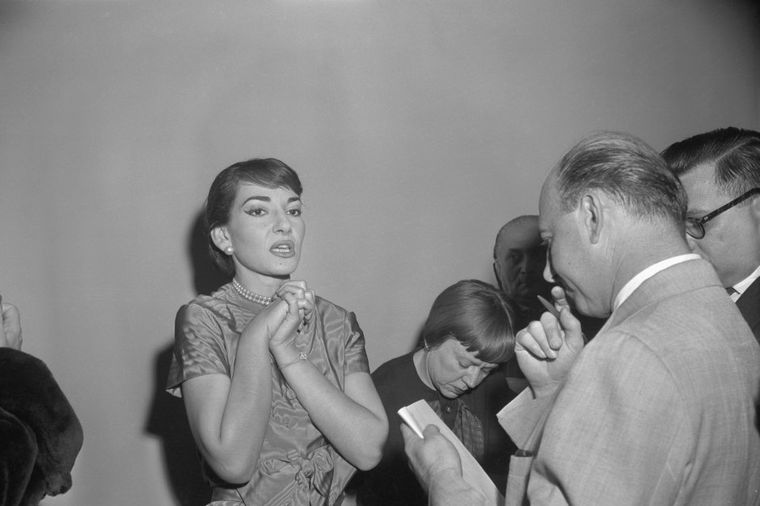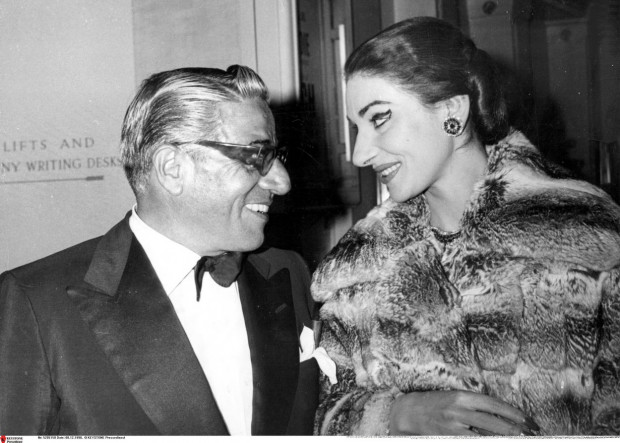Drugs, sexual abuse, violence, blackmail: New discoveries in the life of Maria Callas

The unpublished letters of Maria Callas describe her painful relationship with her husband, mother and Aristotle Onassis - she was drugged, sexually abused, blackmailed and robbed. The book "Cast a Diva: The Hidden Life of Maria Callas" by Lindsay Spence, which will be published on June 1, writes the British press ("Observer", "Guardian" "Huffington Post"), tells about the dark and sad side of the biography of the legendary opera singer.

The book's author, Lindsay Spence, had access to unpublished material that included a series of letters Callas wrote to her secretary. In the letters, the diva, among other things, openly talks about her relationship with her husband Giovanni Batista and Aristotle Onassis. There is also information about her difficult youth and painful memories of the war: her mother forced her into prostitution with German soldiers.
Her mother blackmailed her, her husband Giovanni Battista Meneghini robbed her, and tycoon Aristotle Onassis was very violent with her and then left her for Jackie Kennedy.
The life of opera diva Maria Callas, adored by audiences around the world, was even more tragic than previously thought. This was revealed by Lindsay Spence, a 33-year-old writer from Northern Ireland, who in the new biography of the artist "Cast a Diva: The Hidden Life of Maria Callas", tells about the disturbing background of the star's life, which emerged from a series of unpublished letters.
Onaziz drugged her to rape her
Based on the opera singer's correspondence, Spence highlights Maria's troubled marriage, the abuse that Onassis suffered and the sexual harassment she suffered.
"There is disturbing information in the diary of one of her closest friends, who says that in 1966 Callas was even endangered in life, and how Onassis drugged her, mostly for sexual reasons, specifically to rape her," the new biography reads. will be released on June 1.

In a letter to her secretary, Callas wrote: "I would not want (Onassis) to call me and start torturing me again."
As for the troubled marriage to Meneghini, who was 28 years her senior and whom she had been married to for ten years, from 1949 to 1959, Callas desperately said: from my money, I was a fool to trust him, "describing Meneghini as" a louse who pretends to be a millionaire and has not a penny. "
In another letter, the singer talks about the then president of the Juilliard School of Music in New York, a married man who "raised" the whole faculty against her, preventing her from teaching, after she refused: "Peter Menin fell in love with me. "Of course, because I rejected him, he is against me."
Painful childhood memories
As for her childhood, Callas gives space in her letters to painful memories of the war, when her mother tried to force her into prostitution with German soldiers.
When she became famous again, both her mother and her father tried their best to get her money.
Her mother blackmailed her into telling reporters about her past and wrote: "Do you know what modest filmmakers do as soon as they get rich? In the first month they spend their first money building a house for their parents and pampering them with luxury… What do you have to say, Maria? "
Her father even pretended to be on his deathbed in a hospital in an attempt to extort money from her.
"I am sick of my parents' selfishness and indifference towards me… I do not want more relationships. "I hope the newspapers will not notice, then I would really curse the moment I have parents."
There is also a chapter in the book about Renata Tebaldi, the soprano who has long been Callas' "rival" at La Scala. Wild Callas wrote of her: "She is so bad and cunning, as they say, she became famous only because she was my rival."
Callas, born in New York to Greek immigrants in 1923, died in 1977 at the age of 53. Some talked about suicide and drug abuse. The new biography reveals new details about her health problems and drug addiction during the 60s, which would also explain her voice loss.
In The Observer, the writer Spence states: "I found the neurologist who treated her before she died. "Callas suffered from a neuromuscular disorder whose symptoms began in the 1950s."
"Callas's death is a heartbreaking story. Alone in her Paris apartment, she relied solely on her estranged sister Jackie and partner Vasso Deveci to provide her with sedatives. "Her life was full of tragedy, and I want to honor her," Spence wrote.


